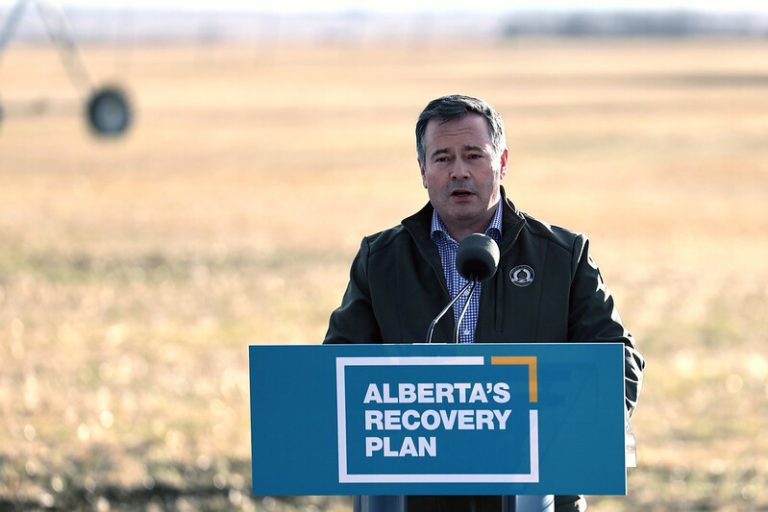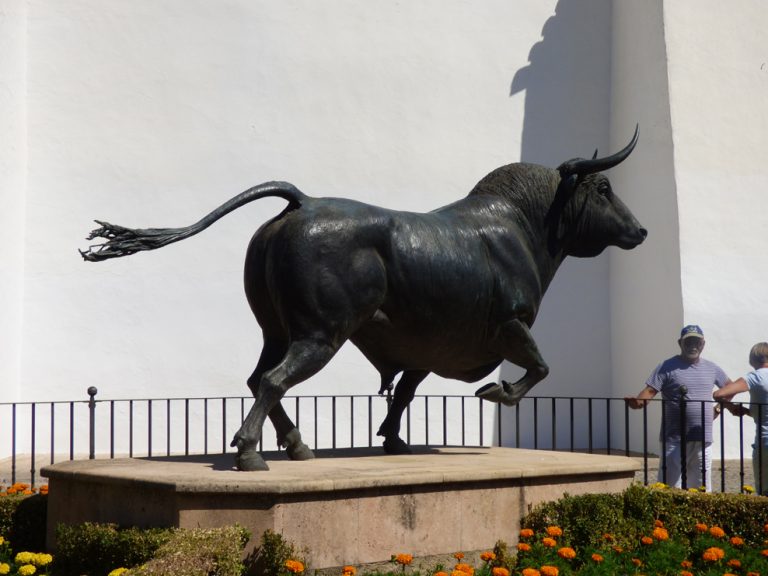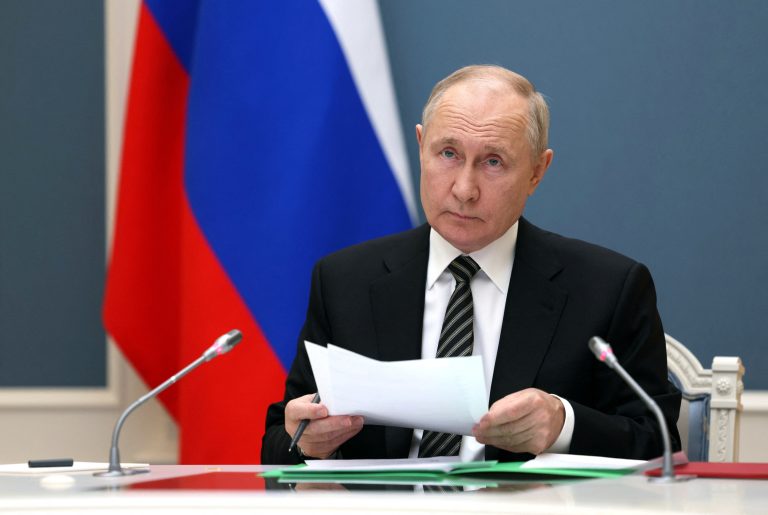The first week of 2022 was off to the races in the push for governments to enact Coronavirus Disease 2019 (COVID-19) measures that transform formerly free countries into increasingly totalitarian forms.
In Canada, Quebec got the ball rolling when it announced on Jan. 7 that not only would fully vaccinated status change to require a booster injection, but that the unboosted and unvaccinated alike would now be barred from the province’s centrally-managed liquor and cannabis stores.
“If the unvaccinated are unhappy, there is a very simple solution — get vaccinated. It’s free and will protect you,” said Health Minister Christian Dube during a press conference.
Dube further stated, “We’re going to be ready to use this passport over the next year or so — and that’s the reason I’m warning people today that the third dose will be adjusted for the passport, and we’d better be ready for that.”
The Minister also put citizens, who are already living under a 10:00 p.m. curfew enforced by a heavy, martial law-like police presence in urban centers, on notice that the Province would be, in the near future, extending vaccine passport lockouts to all non-essential retail businesses.
Success
You are now signed up for our newsletter
Success
Check your email to complete sign up
The same day, federal Health Minister Jean-Yves Duclos stirred the pot further when he stated during a French-language press conference as reported by federally-funded messaging outlet Canadian Broadcasting Corporation that in his “personal understanding of what we see internationally and domestically and in my conversations [with] health ministers over the last few weeks” that mandatory vaccination was an inevitability for Canadians.
The Postmedia syndicate further elucidated on Duclos’s comments, revealing the Minister as also saying, “I personally think we will get there at some point.”
“I see it coming personally. Not now. I don’t think we are there yet. But I think discussions need to be had about mandatory vaccinations because we have to get rid of COVID-19.”
Mandatory vaccination edicts are already in play in other parts of the world. Austria announced late last year that its edict, which comes into force on Feb. 1, will penalize the unvaccinated with consecutive 2,000 Euro fines and four week prison sentences.
For those who have the means to pay their fine and decline vaccination, vaccination is still mandatory on penalty of a year in prison.
However, the unvaccinated will not be held as normal prisoners. Instead, they will be contained in “custody rooms” and made to pay out of pocket for the costs of their own incarceration, reported a German language outlet who viewed the text of the legislation in early December.
The news of mandatory vaccination chatter from the ruling federal Liberal Party prompted Premier of Alberta Jason Kenney, a Conservative, to ostensibly draw a line in the sand against the policy the same day on Twitter.
“Alberta’s Legislature removed the power of mandatory vaccination from the Public Health Act last year and will not revisit that decision, period. While we strongly encourage those who are eligible to get vaccinated, it is ultimately a personal choice that individuals must make,” he stated while quoting an article from the CBC on Duclos’s statements.
While the Premier’s words send a strong message and provide hope some degree of bodily autonomy can be retained by Canadians without having to go through the tribulation of enduring different forms of pressure and coercion, including persecution, Kenney’s statements harken back to those made shortly before vaccine passports went viral across Canada, a move that also originated with Quebec.
In July, shortly after Kenney opened the Province from months of measures and restrictions, the Premier, during an annual Calgary Stampede Breakfast event, decisively vowed Albertans would not be made to show their health papers to live a normal life when he stated, “We’ve been very clear from the beginning that we will not facilitate or accept vaccine passports.”
“I believe they would in principle contravene the Health Information Act and also possibly the Freedom of Information and Protection of Privacy Act,” he added.
Kenney’s comments were nonetheless made at the same time that the Stampede’s Nashville North tent, which hosts many of the biggest names in country music during the city’s annual 10-day carnival and rodeo, enacted Alberta’s first vaccine passport requiring proof of vaccination or negative PCR test for all attendees.
The Nashville North tent was partnered with 19toZero, a vaccine acceptance advocacy group co-founded by Jia Hu, a University of Calgary assistant professor and a Medical Officer of Health for the Calgary Zone at Alberta Health Services.
Hu’s entity is sponsored by Big Pharma entities such as Pfizer, Moderna, and Merck.
Just a few months prior in May, Kenney had previously strongly positioned himself when he stated that, “There is no mandatory vaccines and no vaccine passports in Alberta, and nor will there be – period, full stop.”
Only a few months later on Sept. 16, Alberta suddenly announced it would follow the tide across Canada and begin requiring vaccine passports to access bars, restaurants, theaters, gyms, and clubs.
The measure has never abated.
Originally, the mandate was to extend to all non-essential retail stores, effectively barring the unvaccinated from everything except grocery stores. That aspect of the edict was quietly removed the night before the policy came into force on Sept. 20, however.
In announcing the new decree, Kenney publicly apologized for his move to treat COVID rationally as an endemic disease, “I know that we had all hoped this summer that we could put COVID behind us once and for all, that was certainly my hope and I said that very clearly…It is now clear that we were wrong, and for that I apologize,” Kenney said in response to a reporter’s question.
Shortly before the change in heart was revealed as a new concrete reality for Albertans, Kenney was often seen chattering in the media claiming that COVID in the Province had become “a crisis of the unvaccinated.”
Yet, analysis of hard data harvested from Israel, the United States, and the United Kingdom all pointed to a different reality wherein a frightening portion of Delta cases were occurring in the fully vaccinated population.
Alberta, like the federal government, skews the data it uses to claim that the majority of hospitalizations and positives have occurred in the unvaccinated simply by calculating all cases that have occurred since December of 2020 when vaccines first started to be rolled out to long term care providers.
And with the Omicron variant of SARS-CoV-2, one of the earliest detections of which was in a group of fully vaccinated diplomats from an unidentified country who entered Botswana in late November, the pretext that gene therapy injections can save the world from COVID has been flipped even flatter on its head.
A preprint study published Jan. 1 funded by the Ontario Ministry of Health and the Public Health Agency of Canada shockingly found that during a 27-day period between November and December that double vaccination actually produced substantial negative vaccine efficacy against Omicron, meaning the fully vaccinated were more likely to contract Omicron than if they had remained unvaccinated.
More notably, the study, which examined Ontario’s provincial health records for those 18+ while excluding residents of long-term care homes, found that not only were a mere 5.1 percent of all Omicron positives unvaccinated, but only 33.1 percent of all Delta positives were unvaccinated.
The difference between Premier Kenney’s words on mandatory vaccination and vaccine passports, however, is significant because of concrete actions his government took in April of 2021 to remove the mandatory vaccination powers granted to the Province under the century-old Public Health Act.
Kenney’s administration deleted its powers at the same time as it revoked the controversial Bill 10, which the Province passed in the earliest days of the pandemic, allowing Ministers “to unilaterally amend legislation by ministerial order,” according to the CBC.
After receiving a constitutional challenge from the Justice Centre for Constitutional Freedoms, the Province pledged to repeal the legislation.
Members of the Legislative Assembly were convened around the same time to review the Public Health Act. The CBC says the special committee had “received 41 public submissions against mandatory immunizations during a pandemic,” showing the issue of mandatory vaccination and passports were already at the forefront of citizen’s minds months before injections were made available under emergency use declaration.
















